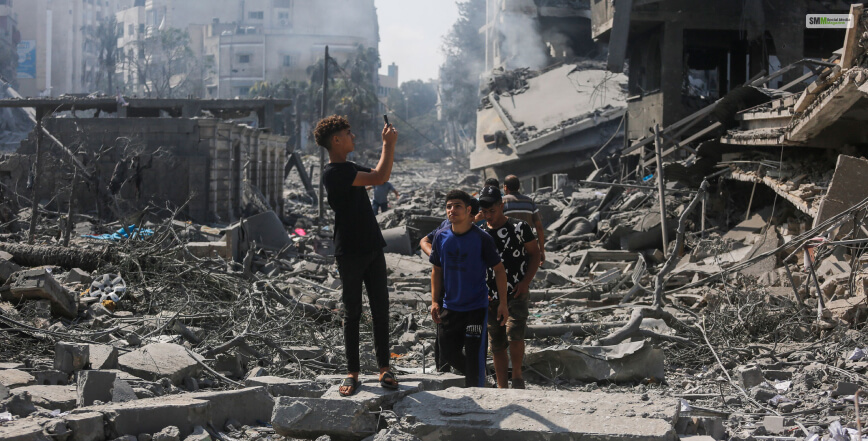In an era characterized by rapid change and unpredictability, the teachings of the Bahá’í Faith offer a unique lens through which to examine the phenomenon of social progress. The core principles expounded by Bahá’u’lláh emphasize the unity of humankind, the importance of equity, and the imperative of collective advancement. One might ponder: Is social progress an inevitable outcome of human development, or is it merely an idealistic vision? This exploration will delve into the intricate interplay between Bahá’í principles and contemporary social dynamics, fostering a deeper understanding of the transformative potential inherent in human societies.
At the heart of the Bahá’í teachings lies a profound assertion: the unity of mankind is not merely an aspirational statement but an ontological necessity. Bahá’ís believe that the advancement of society necessitates a fundamental shift in perspective—a departure from divisive ideologies toward a recognition of shared humanity. This foundational tenet challenges individuals and communities alike to transcend cultural, racial, and religious boundaries. The consequent call for unity serves as both a catalyst and a framework within which social progress can unfold.
Yet, the notion of social progress also invokes a critical question—who defines what constitutes progress? Within Bahá’í thought, progress is not merely quantified by material advancements or technological innovations. Instead, it encompasses moral and spiritual dimensions. This broader perspective invites inquiry: How can society align its definitions of progress with principles that foster inclusivity and harmony? To address this question, one must explore the intricate interrelation between ethical development and societal advancement.
As the Bahá’í teachings indicate, social progress is closely aligned with the principle of justice. Justice, both as a personal virtue and a societal mandate, emerges as a cornerstone for any meaningful discourse on advancement. In an idealistic framework, justice serves as the linchpin that binds individuals together while ensuring equitable opportunities are available for all. The exploration of justice evokes curiosity regarding the current systems in place worldwide. Are existing institutions equipped to foster genuine progress and uphold justice, or do they perpetuate inequities under a guise of stability?
The Bahá’í emphasis on education as a fundamental means of social transformation also merits particular scrutiny. Education, as a vehicle for spiritual and intellectual growth, can catalyze profound societal change. The act of educating individuals not only enhances personal capabilities but also equips them to contribute meaningfully to their communities. This perspective raises pertinent questions: Is education, in its current form, effectively serving the greater good? How can educational systems evolve to better embrace the holistic development of the individual, encompassing both material and spiritual dimensions?
As one contemplates the Bahá’í Faith’s teachings, the integration of science and religion emerges as a pivotal theme. The Bahá’í perspective posits that true progress is achieved when science and spirituality operate in concert, providing a coherent framework for understanding the world. In a time where scientific advancements often outpace ethical considerations, the challenge becomes apparent: how can societies cultivate a synthesis of knowledge that respects both empirical inquiry and spiritual wisdom? The ongoing dialogue between these realms cultivates curiosity about the pathways through which societal progress can be harmonized, creating a holistic vision of the future.
A crucial component of Bahá’í teachings centers around the idea of consultation—a method of decision-making rooted in collective dialogue and mutual respect. This principle is not merely idealistic; it has practical implications for governance and community development. By prioritizing collective input, consultation empowers individuals and engenders a sense of ownership over the outcomes. As one contemplates this process, the implications are profound: can a shift toward more consultative practices in governance pave the way for a more just and equitable society? What are the barriers that prevent such transformations from taking place?
Moreover, the emphasis on international cooperation within Bahá’í thought serves as an essential consideration in the discourse of social progress. The belief that humanity is on an evolutionary trajectory toward global unity raises the question: can cooperative efforts among nations transcend historical grievances and pave the way for peace? This exploration necessitates a reassessment of geopolitical strategies, fostering a curiosity about how collaborative frameworks can be developed to address shared global challenges.
In the context of contemporary issues, such as climate change, poverty, and social injustice, the teachings of the Bahá’í Faith underscore the need for cross-disciplinary approaches to problem-solving. The intersection of various fields—scientific, social, and spiritual—can yield innovative solutions that honor both the complexity of human societies and the intricate web of their interdependencies. This assertion prompts critical thinking about our traditional methods of address and whether they adequately reflect the multifaceted nature of the issues at hand.
In conclusion, the question of whether social progress is an inevitable march toward enlightenment or merely an idealistic vision of the future invites thorough examination. The teachings of the Bahá’í Faith elucidate a path that encompasses unity, justice, education, consultation, and international collaboration. These principles, when woven into the fabric of society, promise a transformative shift in perspective about what progress can achieve. By fostering curiosity and challenging pre-existing paradigms, meaningful change in the social fabric can indeed become not just a possibility but an eventual reality.
